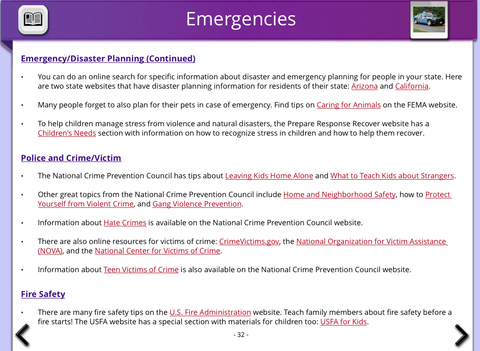You’d never notice from looking at Theresa Munanga’s résumé that she is on the autism spectrum. A master’s degree, three years of service as a US Peace Corps Volunteer, two books and an iPad app could be hallmarks of any industrious person. What her résumé doesn’t show are the everyday difficulties she faces with Asperger’s Syndrome (now classified as Autism Spectrum Disorder, Level 1) and prosopagnosia (face-blindness).
When were you diagnosed, and what are some of the obstacles you face in your day-to-day life?
I was diagnosed as an adult, although if I had been born today, I would have been diagnosed as a child. I had obvious symptoms growing up: severe social problems, heightened sensitivity in all senses (smell, touch, etc.), an inability to recognize facial expressions and subtle cues, and several other characteristics including face-blindness and balance problems. Luckily, my father taught me early on how to research the answers to my many questions. This gave me the skills I needed to research why I was different from everyone else and what I needed to learn to “fake” my way through short-term public situations such as job interviews. I am also fortunate in that I am “high-functioning” and have a passion for helping others.
Today I am aware that I perform better in online classes and in one-on-one social settings. I have difficulty obtaining and keeping jobs due to my face-blindness and social difficulties. However, I do know that my best skills are computer programming and working with details (such as book and technical editing). I’ve found it sometimes helps if I proactively tell people that I have face-blindness and Asperger’s syndrome, instead of just letting them think of me as a “strange” person. In the US, it is illegal to discriminate against people with disabilities, but it is also nearly impossible to prove that you did not get a job because you are on the autism spectrum. In other words, discrimination still happens…and sometimes entrepreneurship is the best answer for high-functioning people on the spectrum.
What was it like as a Peace Corps Volunteer in Kenya?
The experience was life-changing! In Kenya, I knew that everyone in the country already thought I was strange, simply because all Americans were strange to them. This knowledge freed me and allowed me to “just be me,” so that I did not need to use extra energy to try to appear “normal” (like I need to do in the US). I learned in training how to assess the needs of the local people and how to use that information to create projects to help them. I taught basic and advanced computer skills and classes in business and entrepreneurship and I gave presentations on American culture and HIV/AIDS awareness and prevention. While I was there, I also created a computer-based training application to help teach computer skills to people who didn’t have access to an experienced computer teacher. When I returned to the US, I wrote a book about my Peace Corps experiences.
Tell us about your iPad app.
It’s based on my second book and has links to online resources for new US residents. Topics include refugee and immigrant resources, citizenship (with a practice civics quiz), education, health, finances, emergencies, careers, and volunteering. My passion for helping immigrants stems from my Peace Corps service – in fact, my master’s degree project was six Flash games to help teach immigrants and foreign students about American culture.
I originally released the book as an iBook and in PDF format, but tapping or clicking on the links sent the reader outside of the book. I wanted to create an app that would allow the user to remain in the app and easily return to the chapter after viewing a web page.
A page from “Welcome to America! Online Resources for New US Residents”
The application is currently only available for iPads because I wanted to start with a simple app first. LiveCode was new to me and I wanted to become familiar with it before I expanded to my other application ideas. I plan to update this app and provide it in additional formats for other platforms. I also want to continue to make it more visually appealing.
Why did you choose LiveCode?
I was looking for a programming language that would allow me to easily release applications in multiple formats: iOS and Android, MacOs and Windows. I found LiveCode’s Kickstarter campaign one day and went to the LiveCode website to learn more about it. After researching the language and viewing multiple tutorials, I purchased an Indy license. I then discovered the Create it with LiveCode classes and immediately signed up.
I was very happy to learn a few months later about the campaign to teach LiveCode to 3,000 people on the autism spectrum! As a person on the spectrum myself, I know both how hard it is to get a job and what a great programming language LiveCode is. Many people on the spectrum already have a natural gift for programming languages. This campaign will train people on the spectrum to create their own applications while also giving them a marketable skill for future jobs.
What’s next for you?
The main application I want to create is called Nostalgia. It will provide a way for people in mourning to collect memorial and hospital care web pages, images, and condolence messages for their deceased loved ones. I’ve wanted to create it for a long time and will be so happy when it is finally released on all platforms!
A screenshot from “Nostalgia”
I also want to start my own business, Mwende Software. It will be so wonderful to be able to work on my applications full time! When I’m developing applications – especially with LiveCode – time just flies by. Having my own business will allow me to focus my energies on creating excellent applications.
You can check out the LiveCode autism campaign here.




1 comment
Join the conversationCandy Baker - May 13, 2015
Hi my name was Candy Hunter in High School. When we where in school no one new of this disorder and at this point they don’t know much about it now either. I have a daughter that we think has aspergers but she has never been diagnosed